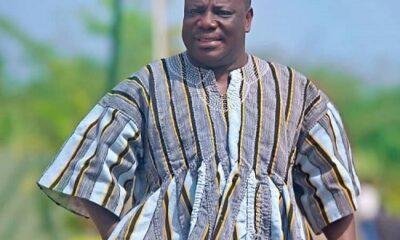Profile
Resilience, versatility and service: The story of Ohemea Odiasempa Abena Ayeba Okani I
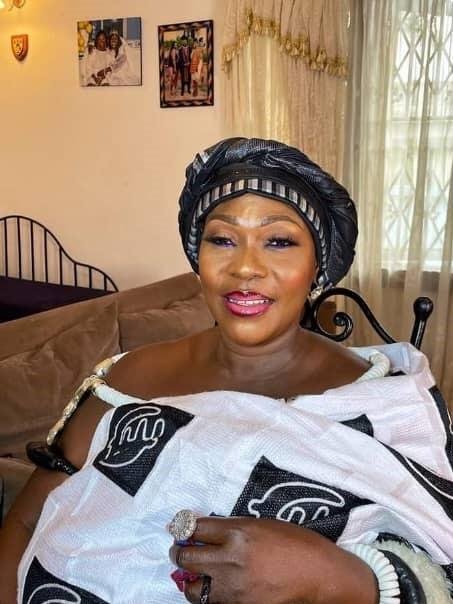
Ohemea Odiasempa Abena Ayeba Okani I, known in private life as Mrs Susan Essilfie, is a woman of many parts-a royal, a mother, an entrepreneur, a sports enthusiast, and above all, a symbol of resilience. Her life story weaves together the threads of tradition, business, service, and personal strength, making her one of the most dynamic figures within her community and beyond.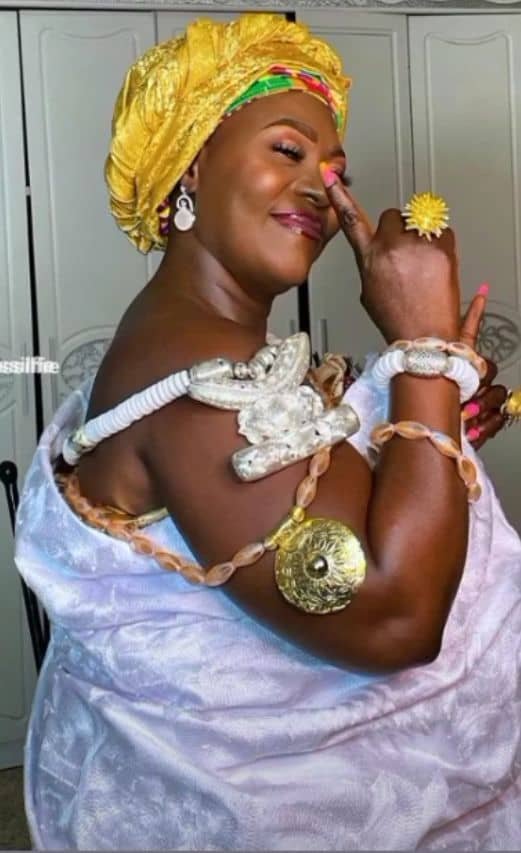
Her roots in royalty run deep. Born into royal household, her late father served as one of the chiefs, and by lineage, her destiny was tied to leadership and service.
Yet, her elevation to the stool was not just about tradition-it was about her willingness to serve.
Speaking to The Spectator at her residence at Spintex in Accra, Ohemea Okani I of Adukrom Akuapim, recalled one of the uncles in her royal family emphasised the importance of sustaining their heritage and supporting their people.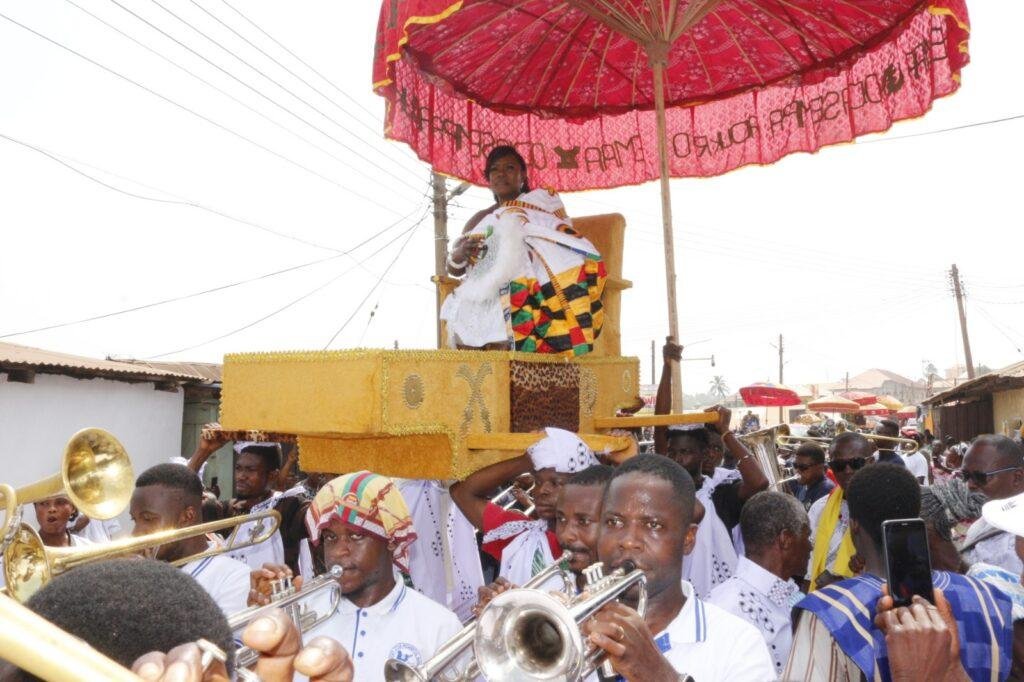
For her, stepping into that responsibility was considered an honourable calling.
She stated that the role of a Queen mother was not ceremonial but rather carries a lot of weight: the discipline to uphold values, the responsibility to guide the youth, and the obligation to contribute to development.
She believes that Queen mothers were meant to safeguard livelihoods, encourage progress, and serve as role models in their communities.
“The main aim is to support the township, especially in youth development,” she notes.
She however admitted that the role comes with challenges, particularly financial, as many traditional leaders were not on formal payrolls.
Ohemea Okani I said without an independent source of income, it can be difficult to fulfill these duties effectively.
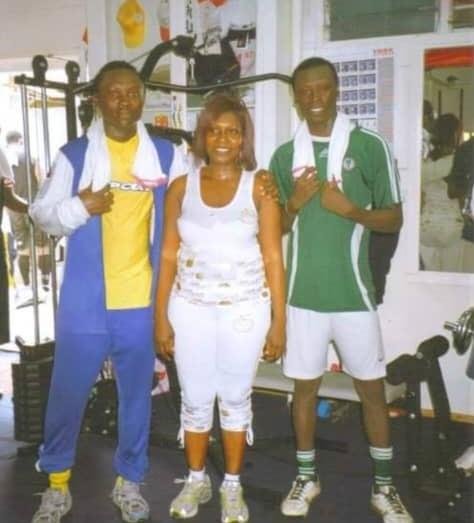
That is where her entrepreneurial skills and strength shines. Over the years, Mrs Essilfie has built a diversified business portfolio spanning construction, cleaning services, textiles, detergents, and food and drinks production.
Previously, she was active in the fisheries trade, following in the footsteps of her mother, who was a fishmonger.
Although she eventually left the trade due to market challenges and losses, the lessons she carried forward about resilience, bargaining, and perseverance continue to shape her entrepreneurial approach.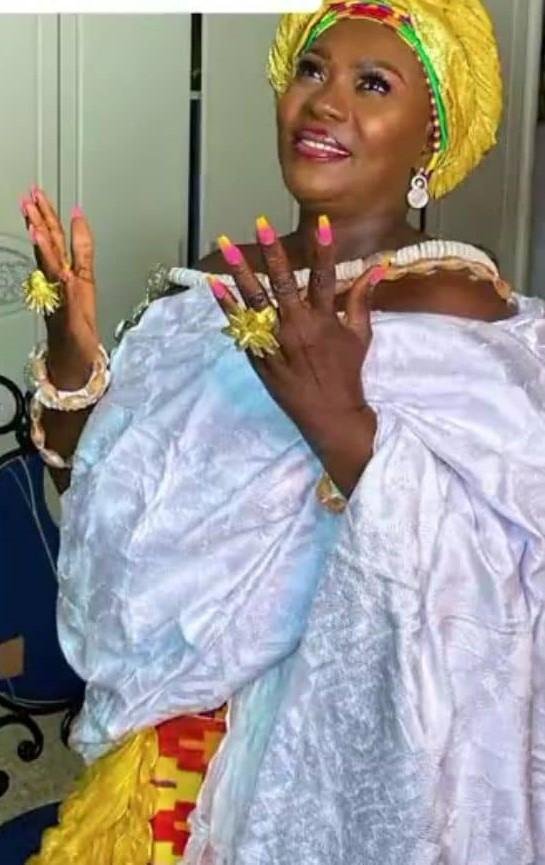
Her versatility is perhaps most visible in sports. For years, she owned and managed Sutick Gym at Tema Community 1, Site 15, a commercial gym that attracted footballers, musicians, and fitness enthusiasts.
Her passion for sports grew naturally—she was always active, loved physical activity, and found joy in encouraging others to train.
From that base, she was drawn to boxing, a sport she considers both tough and inspiring.
To her, boxing was more than entertainment; it is business, discipline, and a powerful tool for channeling youthful energy into productive outcomes.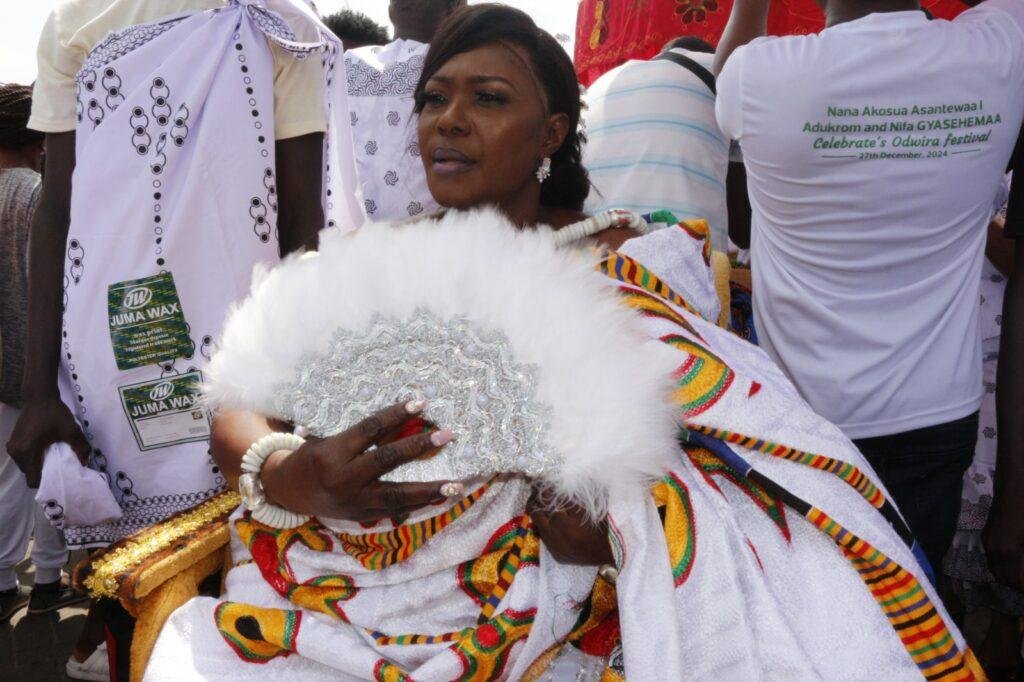
“Boxing is a big-time business,” she says with conviction.
She dreams of seeing Ghana reclaim her reputation as a boxing powerhouse, putting more young athletes on the global stage.
She also advocates for women to take up the sport, not only for fitness but also as a pathway to empowerment and financial independence.
Her vision is already inspiring the next generation—her son recently completed a course in boxing promotion and is now awaiting his license to officially step into the business side of the sport.
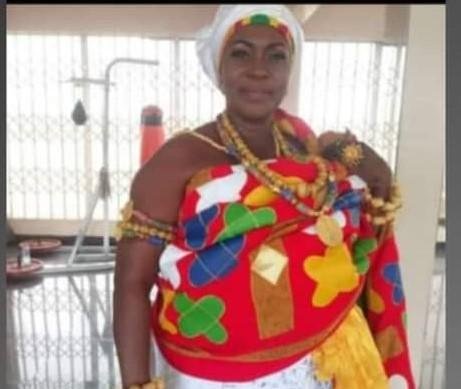
Beyond her businesses and sports initiatives, Ohemea Okani I has also carved strong niche in philanthropy.
She is the founder of Royals of Valour International, a non-profit organisation that supports and trains women for free in soap making, baking and other vocational skills.
So far, about 200 women have benefited from this initiative, gaining practical skills that enable them to earn an income and support their families.
For her, empowering women with skills is one of the surest ways of breaking cycles of poverty and dependency.
Balancing tradition, business, and family has not been easy, particularly after she lost her husband during the COVID-19 pandemic.
Left to raise two children on her own, she leaned on faith and determination. Her daughter is now pursuing music, while her son is preparing to make his mark as a boxing promoter.
Though the journey has been tough, she sees her children’s progress as one of her greatest achievements.
As a devout Christian, she attributes her strength to God and also acknowledges the values of discipline, compassion and resilience instilled by her parents.
She recalls how her mother’s work as a fishmonger required long hours, frequent travel, and unwavering determination. Those lessons taught her never to rely solely on others and to take pride in hard work.
Ohemea Okani I urged young women to work hard, learn a trade and not rely on anyone else for survival.
She stressed that in today’s world, self-reliance is not optional, it is essential.
She cautions against the modern tendency of young people to seek shortcuts or instant wealth, encouraging them instead to focus on skills, discipline, and perseverance.
She also challenges traditional gender roles, pointing out that no field should be seen as exclusively for men or women.
Whether in construction, trucking, or sports management, she believes women can thrive if they were determined and prepared. “The most important thing is to do it right, make your money, and plan for the future,” she emphasised.
- By Esinam Jemima Kuatsinu
Profile
Albert Litela Obidiaba: The artist who wove Ghana’s soul into the King’s Baton
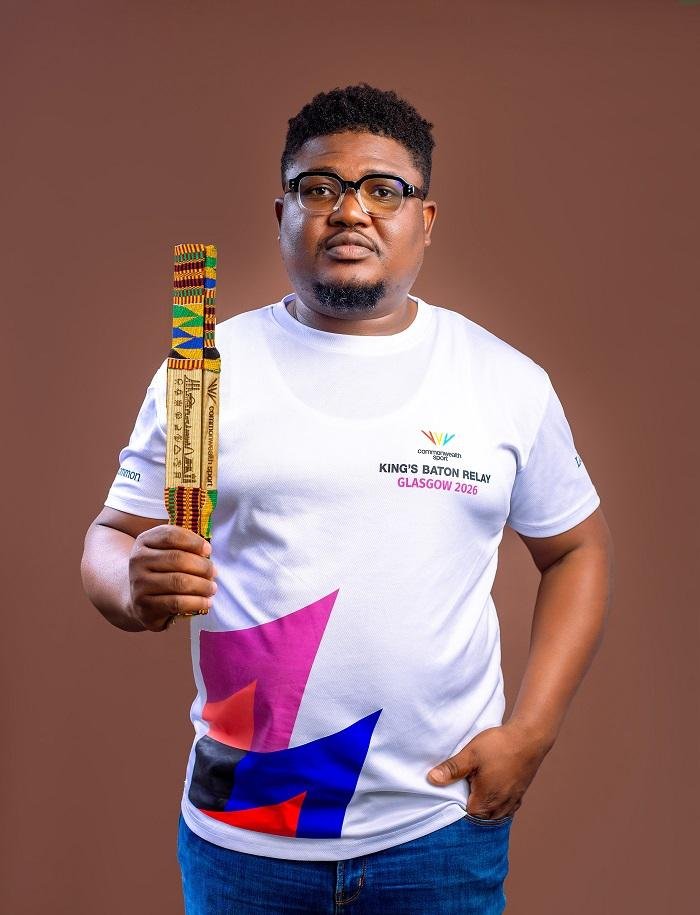
When the world’s eyes turn to the King’s Baton on its global journey, one of Ghana’s most profound artistic stories travels with it. It will be a story of creativity, culture, and national pride crafted by Albert Litela Obidiaba.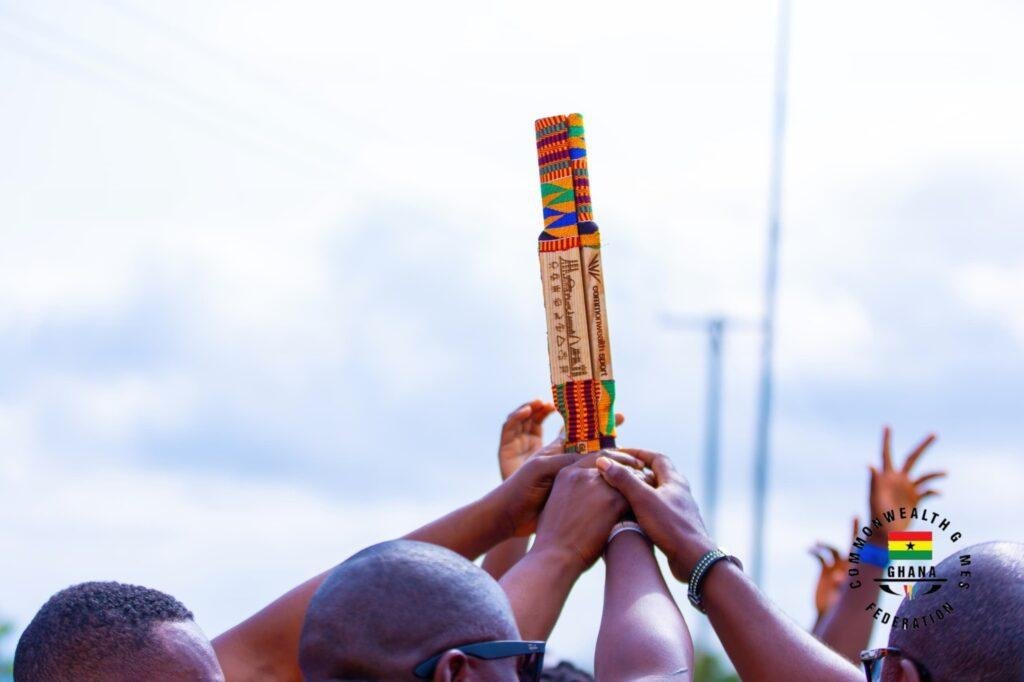
From the quiet town of Old Baika in the Oti Region, Albert’s journey as an artist has always been about telling stories. It is not just through words, but through symbols, textures, and meaning.
“From a young age, I was drawn to the power of art, knowing how colours and textures can capture not just emotion but culture and identity,” he recalls.
Today, his name has become synonymous with innovation rooted in traditional bridge between Ghana’s past and its global creative future.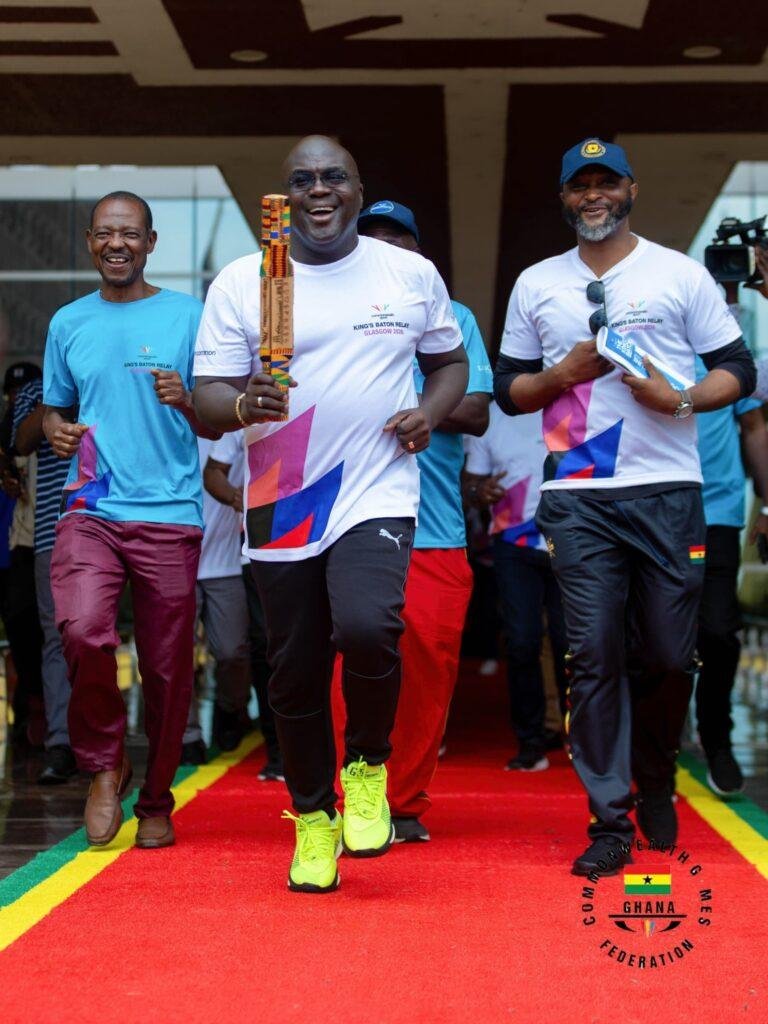
Albert’s love for art was born from curiosity. Surrounded by the vibrancy of Ghanaian culture; the patterns of kente, the stories behind Adinkra symbols, and the textures of daily life, he began sketching and crafting early on.
“Simple things told deep stories,” he says. “That fascinated me.”
As he matured, his art evolved into a personal mission to preserve and reinterpret Ghana’s heritage for a modern audience. His style reflects a seamless blend of culture and contemporary design, each piece a narrative of unity, history, and pride.
“I see art as storytelling through form and symbolism, it should feel rooted in purpose yet speak to today’s world,” he explains.
When the call came to design Ghana’s version of the King’s Baton, Albert saw it as both a national duty and a creative calling.
Recommended by mentors like Mr Charles Osei Asibey, who trusted his talent and understanding of Ghanaian symbolism, he embraced the project wholeheartedly.
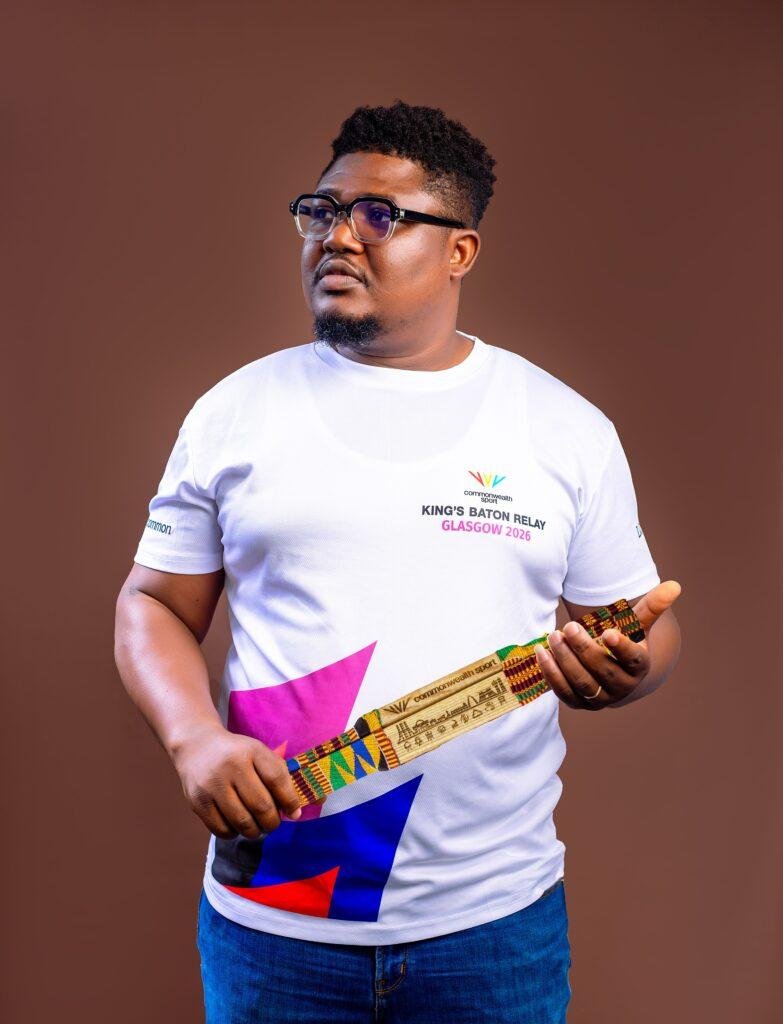
His vision was clear; to create a piece that would embody unity, pride, and the enduring spirit of Ghana.
Drawing from traditional motifs, he integrated textures inspired by kente weaving, representing hard work, continuity, and creativity. The golden tones symbolise strength and dignity, while the contours and natural motifs mirror Ghana’s landscapes and people.
“The King’s Baton had to tell our story of who we are, what we value, and how we see the world, it is more than art, it is identity in motion,” he said.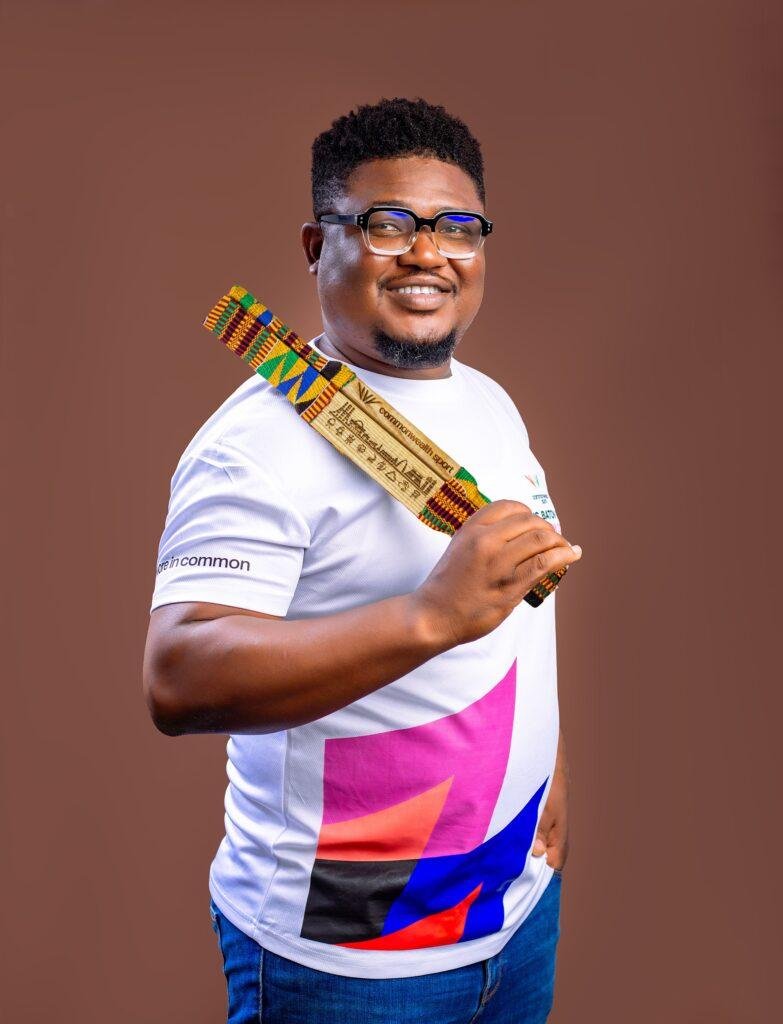
Every etch, every pattern carries meaning. From concept to completion, the entire process took three intense weeks which were filled with research, design sketches, consultation, and collaboration with skilled artisans.
“It was days and nights of work, but a lifetime of meaning,” he says with quiet pride.
Creating a design that represents all of Ghana’s diverse cultures was no small feat. Albert had to balance aesthetics, authenticity, and technology thereby using sustainable wood, carefully treated and certified, to reflect the nation’s commitment to nature and preservation.
“It wasn’t easy finding the right mix,” he admits. “But those challenges pushed me to think deeper. They made the final piece stronger — both artistically and symbolically.”
For Albert, Ghanaian culture is both muse and message. His works echo the values of unity, strength, persistence, and wisdom, drawn from Ghana’s traditions.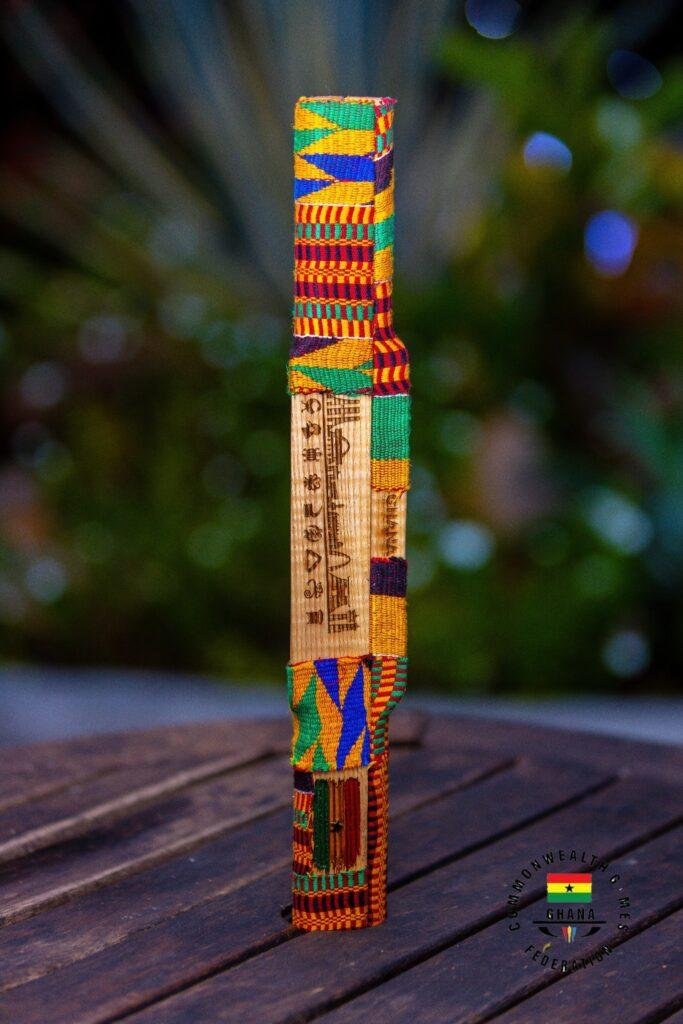
“Art preserves who we are and every line and symbol tells a story of belonging,” he said, and believes art is one of the most powerful tools for building national pride.
Designing the King’s Baton has been a defining moment in his creative journey and that it deepened his appreciation for cultural storytelling. “It taught me that creativity is also a form of service,” he said.
The experience has opened new professional doors, but more importantly, it gave him a renewed sense of purpose making him embrace a call to national duty.
“My soul will be glad even after my days on earth are over,” he said beaming with smiles.
Beyond the King’s Baton, Albert has worked on numerous projects celebrating Ghanaian identity through contemporary art and design. His ongoing works explore symbolism and heritage in new forms which includes blending materials, stories, and styles from across Ghana’s regions.
He is currently preparing projects that continue the conversation the baton began. They are about unity, creativity, and Africa’s evolving artistic voice.
To young artists aspiring to make their mark, Albert’s advice is for them to believe deeply in their craft and that the world is always looking for authenticity “which comes from knowing who you are and where you come from.”
On how he wants to be remembered, he said, “I want to be remembered as an artist who used creativity to celebrate culture and connect people. If my name is remembered as the one who designed Ghana’s version of the King’s Baton, that will be enough, because it means I carried Ghana in my hands, and shared her with the world.”
By Esinam Jemima Kuatsinu
Join our WhatsApp Channel now!
https://whatsapp.com/channel/0029VbBElzjInlqHhl1aTU27
Profile
Survival to service: Margaret Odame Donkor the breast cancer preacher
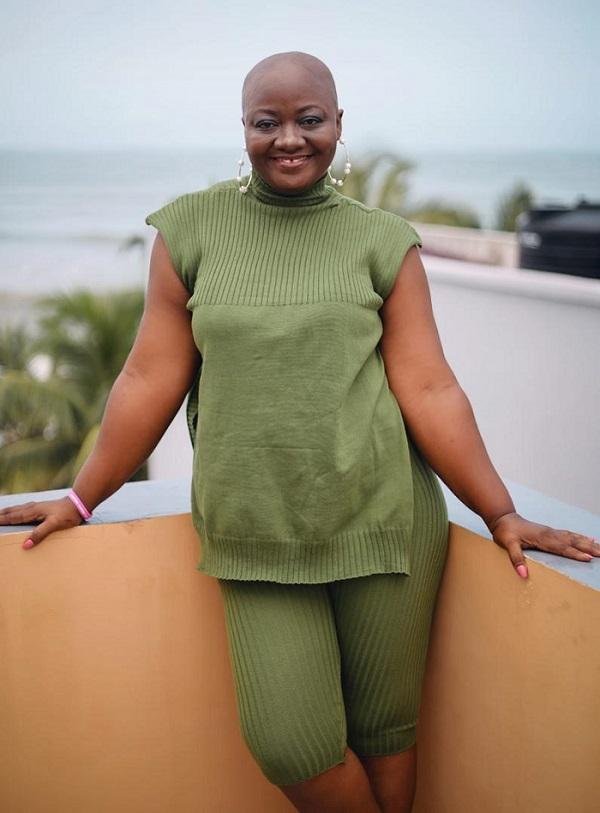
A ‘trotro’ bus heading to Nsawam was filled with the usual sounds from conversations, music, and sometimes a preacher delivering a message.
But when Margaret Odame Donkor rises to speak, she does not preach salvation or sell herbal remedies. Instead, she shares her journey as a breast cancer survivor, urging passengers to examine their breasts regularly, seek medical help early, and never lose hope.
Her pulpit is not a church, but the crowded minibuses of Ghana’s public transport system. Her message is not about repentance, but about survival.
She urges women to check their breasts regularly, encourages men to support their wives during health challenges, and reassures everyone listening that a cancer diagnosis is not the end of life.
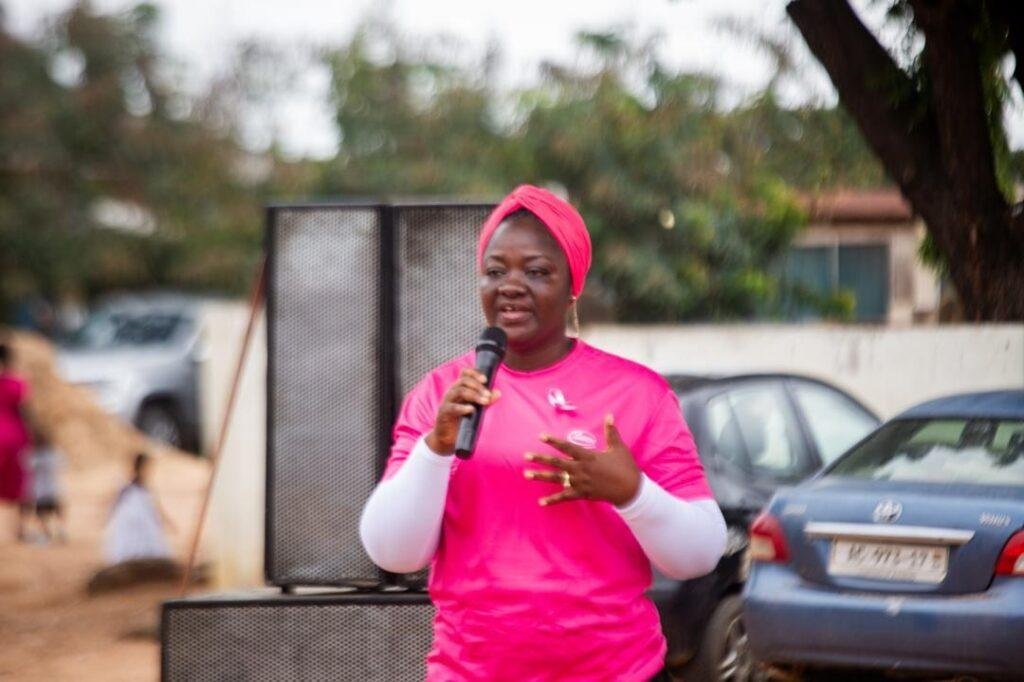
For Margaret, creating awareness is more than a duty-it is a calling born out of personal pain, fear, and triumph.
Her words carried weight because they come from lived experience.
At age 48, Margaret has walked through the valley of fear and pain, battled stage three invasive carcinoma, and emerged not just a survivor but an advocate determined to educate others.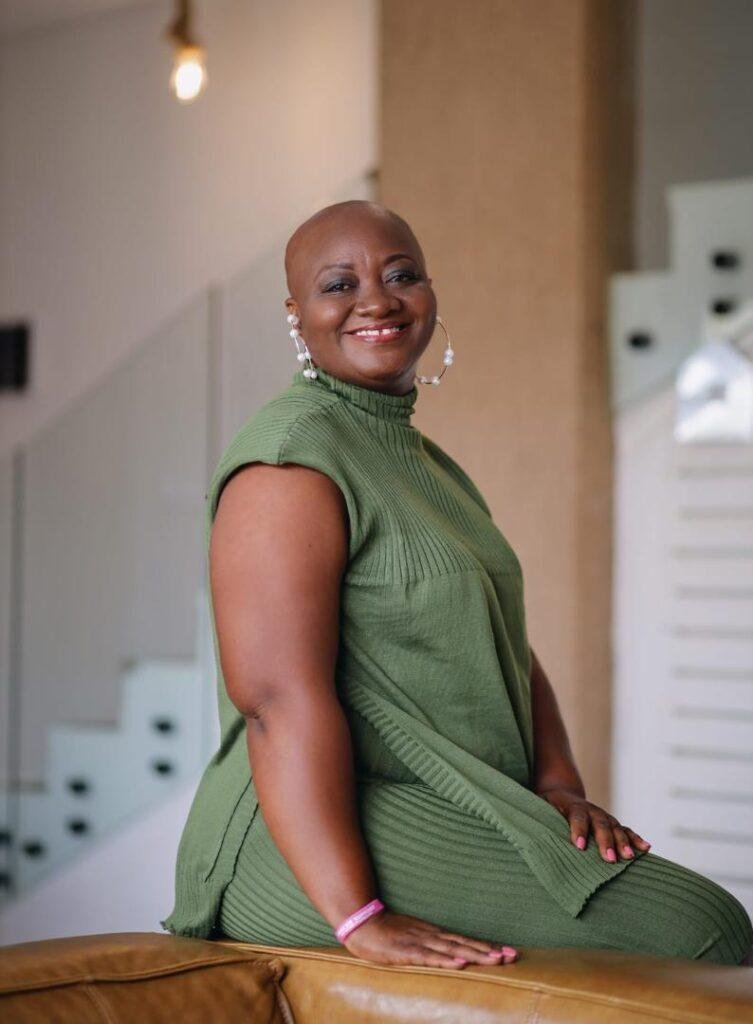
Cancer journey
Margaret’s encounter with breast cancer stretches back decades. At 22, she discovered a lump in her left breast. It was removed and declared benign. Relieved, she skipped regular checks and moved on. Then in 2021, the lump reappeared—this time spreading toward her armpit.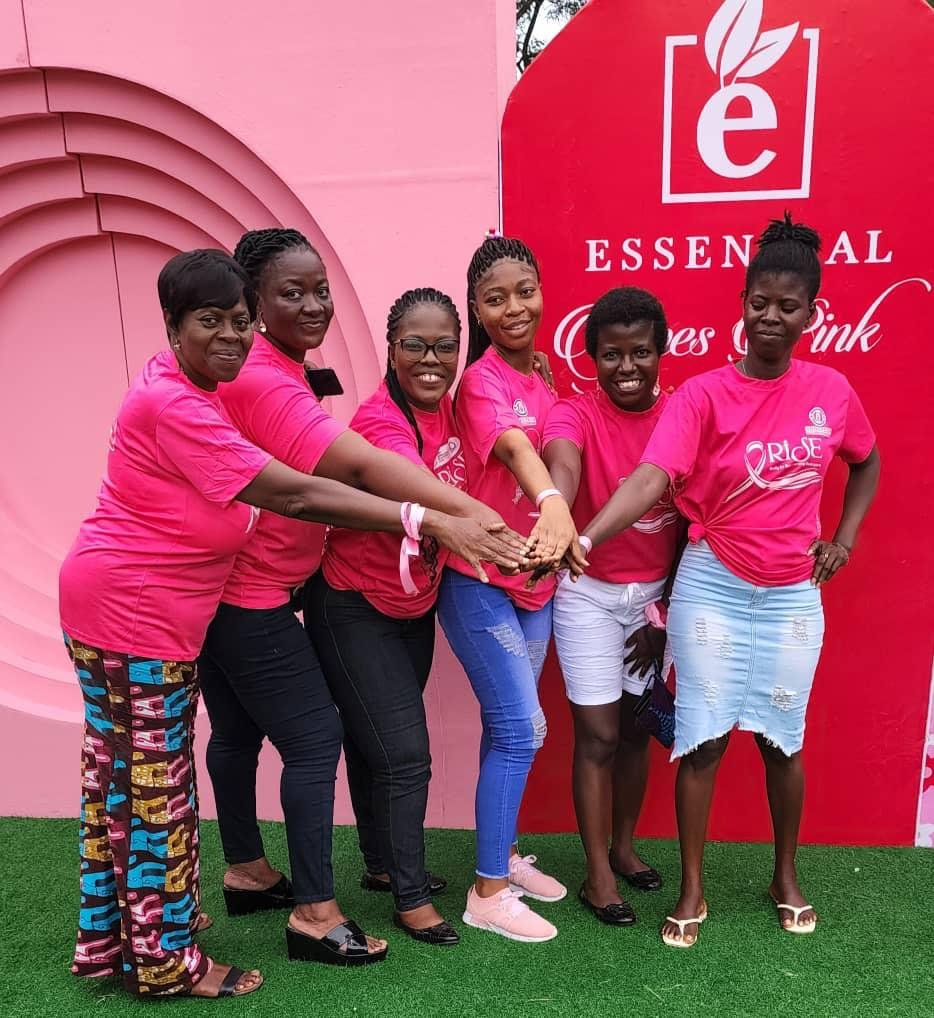
At a church screening in October 2022, doctors detected suspicious lymph nodes. Further tests confirmed her worst fear: stage three invasive carcinoma.
“It wasn’t easy,” she recalls softly. “But my faith in God kept me strong. My husband, children, family, friends, and colleagues formed an army behind me. Their prayers, visits, and encouragement gave me the courage to fight.”
“Be grateful every day because you never know what tomorrow may bring. No one has it all, but with love and support, you can endure,” she stated.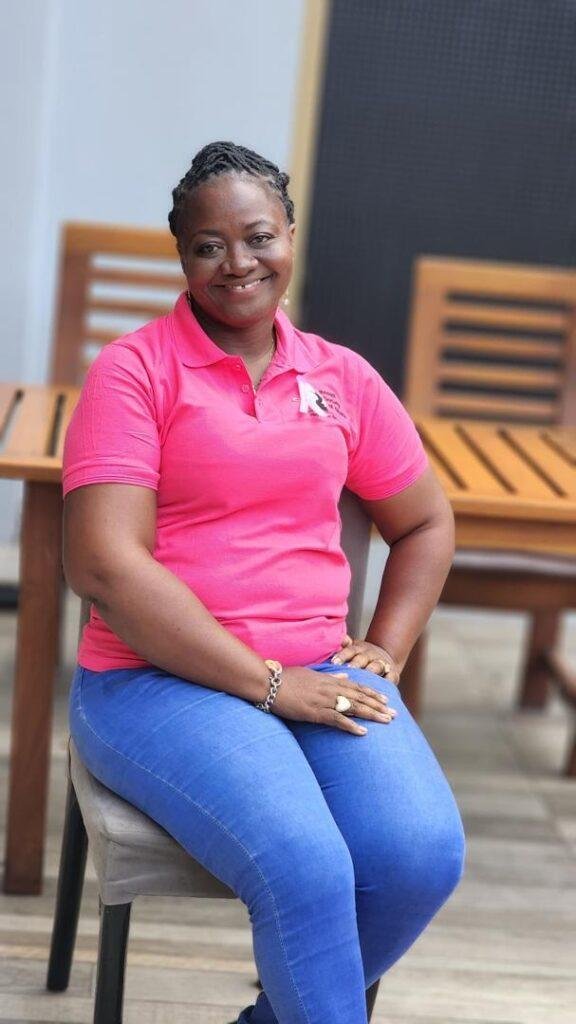
Her greatest fear remains recurrence and not living long enough to see her children graduate and become the people she dreams for them to be.
Before cancer disrupted her life, Margaret had found purpose in interpretation. In 2020, a friend spotted a Judicial Service vacancy and encouraged her to apply. After years of unsuccessful attempts at government jobs, she was reluctant, but she tried once more. This time, she succeeded and was posted to the Eastern Region, her home.
Today, she works at the Nsawam District Court, one of the busiest in the area. On a typical day, she arrives at 7:30am, prepares dockets, and confers with magistrates. She interprets proceedings in Twi, Ga, Hausa, and occasionally Ewe, ensuring that justice was accessible to all.
Her role is demanding. Cross-examinations require her to switch quickly between English and local dialects, while marriages often call for interpreting vows in couples’ preferred languages. Still, she thrives. “The registrars and magistrates I’ve worked with have been amazing. They make the environment very comfortable,” she stated.
Beyond the courtroom, Margaret is also an entrepreneur. In 2017, she founded Nubreed Décor, an events decoration business born from her childhood love for beautifying spaces. She recalls cutting paper decorations as a child and helping her cousin rent out chairs and decorate venues.
Balancing décor with court work was tough, and her health struggles after surgery made it even harder. Radiation left her with persistent rib pain, forcing her to slow down. “Now I hire more hands, which makes business expensive, but it helps me achieve my goals,” she explained.
Her biggest challenge as an entrepreneur remains finance. “The event industry is huge, but I have to work at my own pace and focus on my niche,” she admited.
Cancer changed how Margaret values people and relationships. She learned that those you least expect often become your strongest supporters. She urges families to stand by patients with prayers, encouragement, and financial support, reminding society that a cancer diagnosis is not the end of life.
Her advocacy extends beyond awareness talks. She dreams of establishing a counselling centre for young people and hopes Ghana will expand access to mammograms and radiotherapy centres. “Every patient deserves a chance at survival,” she said firmly.
She urged the youth to live peacefully and be their brother’s keeper, learn to be content and rely on God.
To women, she asserted that, “love yourselves and make breast checks routine while calling on Ghanaians to be open-minded, avoid being judgmental, and show love.
By Esinam Jemima Kuatsinu

